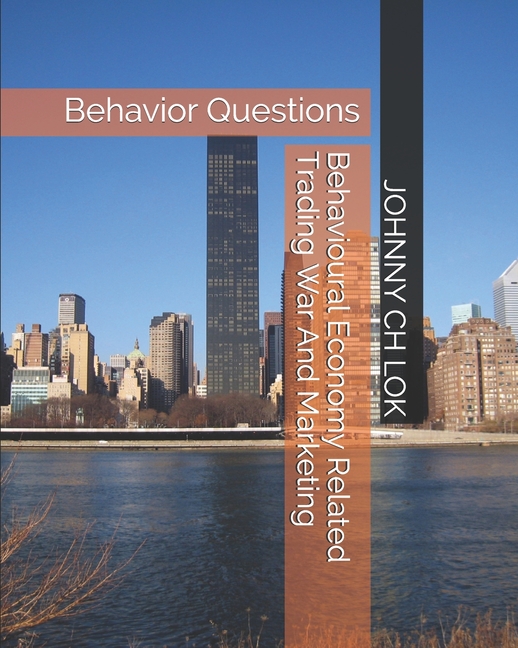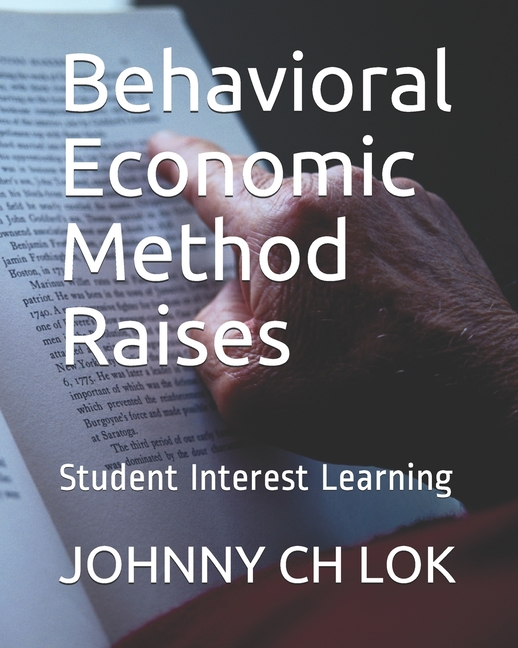
Behavioural Economy Related Trading War And Marketing: Behavior Questions
What is Behavioral Finance Behavioral finance, a sub-field of behavioral economics, proposes psychology-based theories to explain stock market anomalies, such as severe rises or falls in stock price. The purpose is to identify and understand why people make certain financial choices. Within behavioral finance, it is assumed the information structure and the characteristics of market participants systematically influence individuals' investment decisions as well as market outcomes.
| Quantity | Price | Discount |
|---|---|---|
| List Price | $100.00 |
Non-returnable discount pricing
$100.00
Book Information
| Publisher: | Independently Published |
|---|---|
| Publish Date: | 08/11/2019 |
| Pages: | 374 |
| ISBN-13: | 9781089609544 |
| ISBN-10: | 108960954X |
| Language: | English |
Full Description
What is Behavioral Finance Behavioral finance, a sub-field of behavioral economics, proposes psychology-based theories to explain stock market anomalies, such as severe rises or falls in stock price. The purpose is to identify and understand why people make certain financial choices. Within behavioral finance, it is assumed the information structure and the characteristics of market participants systematically influence individuals' investment decisions as well as market outcomes. The efficient market hypothesis (EMH) proposes that at any given time in a liquid market, prices reflect all available information. There have been many studies, however, that document long-term historical phenomena in securities markets that contradict the efficient market hypothesis and cannot be captured plausibly in models based on perfect investor rationality. Many traditional models are based on the belief that market participants always act in a rational and wealth-maximizing manner, severely limiting these models' ability to make accurate or detailed predictions.Behavioral finance attempts to fill this void by combining scientific insights into cognitive reasoning with conventional economic and financial theory. More specifically, behavioral finance studies different psychological biases that humans possess. These biases, or mental shortcuts, while having their place and purpose in nature, lead to irrational investment decisions. This understanding, at a collective level, gives a clearer explanation of why bubbles and panics occur. Also, investors and portfolio managers have a vested interest in understanding behavioral finance, not only to capitalize on stock and bond market fluctuations but to also be more aware of their own decision-making process. Behavioral finance encompasses many concepts, but four are key: mental accounting, herd behavior, anchoring, and high self-rating. Mental accounting refers to the propensity for people to allocate money for specific purposes. Herd behavior states that people tend to mimic the financial behaviors of the majority, or herd. Anchoring refers to attaching a spending level to a certain reference, such as spending more money on what is perceived to be a better item of clothing. Lastly, high self-rating refers to a person's tendency to rank him/herself better than others or higher than an average person. For example, an investor may think that he is an investment guru when his investment performs optimally but will dismiss his contributions to an investment performing poorly. Of the four concepts, two (herd instinct and self-rating/self-attribution) are biases that significantly affect financial decisions. A prominent psychological bias is the herd instinct, which leads people to follow popular trends without any deep thought of their own. Herding is notorious in the stock market as the cause behind dramatic rallies and sell-offs. The herd instinct is correlated closely with the empathy gap, which is an inability to make rational decisions under emotional strains, such as anxiety, anger, or excitement.The self-attribution bias, a habit of attributing favorable outcomes to expertise and unfavorable outcomes to bad luck or an exogenous event, is also closely studied within behavioral finance. George Soros, a highly successful investor, is known to account for this tendency by keeping a journal log of his reasoning behind every investment decision. Many other tendencies are studied within behavioral finance, including loss aversion, confirmation bias, availability bias, disposition effect, and familiarity bias.











